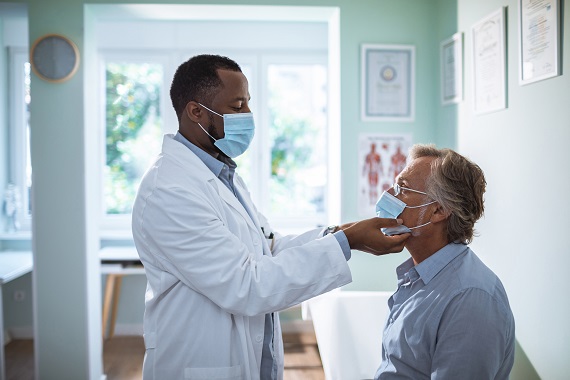In today’s complex healthcare system, having a trusted medical professional who knows your health history and can guide you through every stage of life is invaluable. This is exactly what a Primary Care Physicians (PCP) offers. Often referred to as the “gatekeepers” of healthcare, primary care physicians are your first point of contact for managing everyday health concerns, chronic illnesses, preventive screenings, and referrals to specialists.
What Is a Primary Care Physician?
A Primary Care Physician (PCP) is a medical doctor who provides general healthcare to people of all ages. PCPs are trained to diagnose, treat, and manage a wide range of acute and chronic medical conditions. They play a crucial role in preventive care and overall health maintenance.
PCPs typically fall under several categories, including:
- Family Medicine Doctors – Treat patients of all ages, from infants to seniors
- Internal Medicine Physicians – Specialize in adult medicine
- Pediatricians – Specialize in caring for infants, children, and teens
- Geriatricians – Focus on healthcare for elderly patients
- OB/GYNs – Sometimes act as PCPs for women’s reproductive and general health
Roles and Responsibilities of a Primary Care Physician
Primary care physicians do much more than treat the occasional cold or flu. Their responsibilities include:
-
Preventive Care
One of the main focuses of a PCP is preventing illnesses before they happen. This includes:
- Routine physical exams
- Immunizations and vaccinations
- Health screenings (blood pressure, cholesterol, cancer screenings, etc.)
- Counseling on healthy lifestyle choices (diet, exercise, smoking cessation)
-
Diagnosing and Treating Common Illnesses
PCPs are trained to diagnose and treat a wide variety of common medical issues, such as:
- Respiratory infections
- Skin conditions
- Urinary tract infections
- Digestive problems
- Allergies and asthma
They can also identify symptoms that require further evaluation or referral to a specialist.
-
Managing Chronic Conditions
Many people live with long-term health conditions such as:
- Diabetes
- Hypertension
- Heart disease
- Arthritis
- Depression and anxiety
PCPs help manage these conditions by developing personalized care plans, prescribing medications, ordering labs, and coordinating with other healthcare providers.
-
Health Education and Counseling
PCPs take time to educate patients about their conditions and how to live healthier lives. They provide support for behavior changes, help set goals, and offer resources for improved well-being.
-
Referrals and Coordination of Care
When you need specialized treatment (e.g., for cardiology, dermatology, or orthopedics), your PCP will refer you to a trusted specialist and often help coordinate your care to ensure continuity and safety.
Why You Need a Primary Care Physician
Having a dedicated PCP offers numerous benefits:
-
Continuity of Care
A long-term relationship with a PCP means they know your health history, medications, and lifestyle. This allows for more personalized and accurate care.
-
Better Health Outcomes
Studies show that individuals with a regular PCP have:
- Lower rates of hospitalization
- Fewer emergency room visits
- Better management of chronic conditions
- Higher satisfaction with healthcare
-
Early Detection of Health Issues
Routine checkups and screenings performed by PCPs can detect health issues before they become serious, potentially saving lives and reducing treatment costs.
-
Cost-Effective Healthcare
Primary care is often less expensive than visiting specialists or urgent care clinics for minor issues. By managing health proactively, PCPs help reduce costly hospitalizations and procedures.
How to Choose the Right Primary Care Physician
Selecting the right PCP is a personal decision. Here are some tips to help you choose:
- Verify credentials – Make sure they are board-certified in internal or family medicine
- Check experience – Ask how long they’ve been practicing
- Location & accessibility – Consider proximity to your home or work
- Insurance compatibility – Ensure they accept your health insurance
- Communication style – Choose someone you feel comfortable talking to
- Office environment – Consider appointment availability, wait times, and staff friendliness
When Should You See a Primary Care Physician?
You should consider visiting your PCP in the following situations:
- For your annual physical exam
- When you have non-emergency symptoms (cough, fatigue, digestive problems, etc.)
- To monitor or manage chronic illnesses
- To get vaccinations or health screenings
- To get advice on diet, exercise, and mental health
- Before starting a new exercise regimen or major lifestyle change
Final Thoughts
Your health is one of your most valuable assets, and a Primary Care Physician is your most important ally in protecting it. By building a lasting relationship with a PCP, you gain a trusted advocate who understands your health history, supports your goals, and provides comprehensive care tailored to your individual needs.






